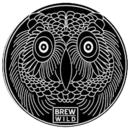Spanish craft beer
Craft Beer in Spain
Beer was consumed in Spain before the romanization, especially among the Celtic people in the Northwest, according to roman writers as Estrabón or Plinio, being the Spanish word for beer cerveza derived through the Latin cerevisia from the Celtic word for cereals coirm. Even the oldest beer found in Europe was recently found in Soria (Spain) dating back to 2.400 BC. But upon the arrival of Romans, wine became the day to day drink, and beer almost dissapeared for centuries. It was not until the 16th century that beer was reintroduced again, via Carolus V, born in Ghent, who introduced Belgian style beers in Madrid. Beer production in the 16th and 17th was marginal in relation with wine, and it was considered a low-quality drink. It was not until the 19th century, with the arrival of industrialization and mass beer production when beer was effectively reintroduced in the Spanish market, and hops started to be grew again in Spain.
In 1856, the first Spanish lager brewery opened, Moritz in Barcelona, starting the modern era of beer in Spain. Subsequently, famous Spanish beers such as Damm (1876), Mahou (1890) and Estrella Galicia (1906) were born. Even in the Spanish colonies, brands such as San Miguel, founded in Manila in 1890, would emerge. The first craft breweries also appeared at this time, especially in Barcelona, first as an extension of the old ice factories, and from 1870 onwards, thanks to the invention of the compressor, served under pressure, which gave rise to the famous name in Spanish for beer—caña.
As for Spanish craft beer, the craft movement would emerge at the beginning of 2000, in parallel in Madrid and Barcelona, but it would be in Barcelona where the Spanish craft beer scene would develop, captained by Steve Huxley and his Barcelona Beer Company. Even so, the craft beer movement in Spain would not gain momentum until the early 2010s, with Spanish craft beer brands recognised worldwide like Naparbier, Nómada, Laugar or La Pirata. In the last years, the market share of craft brewing have been constantly increasing, and a great number of new breweries are appearing each year, with names as La Quince, La Calavera, Edge Brewing, Garage Beer Co. or Jakobsland.
Spanish beer brands
Garage Beer
Garage Beer Co is a brewery founded in Barcelona in 2015 by Alberto Zamborlín and James Welsh. The idea was born when Alberto was living in Dublin and began to experiment as homebrewer, hence the name of the brewery. Then Alberto moved to Barcelona, and after doing a course with Steve Huxley, he met up with James and they decided to set up their own brewery. Their brewery is located in an old bakery in the city centre. In 2016, they raised half a million euros in a crowdfunding effort in order to open a second Garage brewery in Barcelona. Almost all their production is canned, with a very carefully crafted design with aesthetics inspired in the industrial world. They are co-organisers of the MASH festival, together with Edge Brewing.
They are focused in juicy IPA's and NEIPA's, like their acclaimed Soup IPA and Tango Down
Go to Garage Beer
Edge Brewing
Edge Brewing is a Spanish brewery founded in 2013 in Poble Nou (Barcelona) by Alan Sepphard and Scott Vanover. It all started when Scott—who was a tech entrepreneur in Florida—and his wife decided change his life, sell his company and travel around the globe. Then he arrived to Barcelona and got in touch with Alan, and decided to establish there and bring brewing equipent and hops directly from the US.
Alan was in the brewery until 2017, when he left being replaced by Sean McLin, that also recently left the company, being replaced by Riley Finningan, formerly at Avery Brewing. Edge is right now one of the top breweries from the Spanish scene, and they are also organizers of the yearly MASH festival in Barcelona.
In 2021, Elliot Koning and Robin Barden refounded the brand, which from then on will be known as Freddo Fox.
Go to Edge Brewing
La Pirata
La Pirata is a Spanish brewery founded in 2012 in Súria (Barcelona) by Arán y Eric León after years of experience homebrewing—and its name comes from its pirate origin. In 2015 they opened their brewery. Their label design is very colourful and each label is carried out by a different graphic designer.

Go to La Pirata
Laugar
Laugar Brewery is a Spanish brewery founded in 2010 in Bilbao by Eneko Neira, Txus Cabrera, Sergio Valiente and Aingeru del Campo. Its name means four beers—lau gar—in Basque in reference to the four founders. Eneko already had previous experience in the now extinct Bleder in Barcelona in 2008, and based on this he convinced the rest of the team to start brewing at home. Soon they were joined by Eder Garcia, Eneko's classmate and experienced homebrewer—he had brewed more than 400 recipes at home.
Laugar started brewing small batches of beer for local bars in Bilbao, and after attending the Birrasana festival in 2013, they were invited to Borefts, one of the best European craft beer festivals, organised by the Dutch brewery De Molen. After that, they decided to establish their own Laugar brewery with factory and taproom, located in Gordexola, 18 km from Bilbao. In 2017, they were already producing 1500 hL. per year. They are considered one of the best craft beer breweries in Spain, and they have produced in collaboration with some of the main European breweries such as De Molen, Alvinne or Naparbier. They stand out for their stouts, such as the Aupa Tovarisch, in whose honour they celebrate the annual Tovarisch Day, the Aurrera Stanitsa, considered the second best Spanish beer according to Ratebeer, or the Funeralópolis, considered the second best according to Untappd.
Go to Laugar
Peninsula
Cervecería Península is a Spanish brewery founded in 2017 in Alcobendas by Juan Ramón and Román Jové, father and son, who became craft beer enthusiasts after being in Colorado (USA). Later, Román attended to a brewing programme at UC Davis university in California and then they decided to start the brewery. They have a brewery with taproom in Alcobendas (near Madrid), and they are heavely inspired in the West Coast American craft beer scene.

Go to Peninsula
La Quince
La Quince is a gipsy Spanish brewery founded in 2013 by Jacobo Lliso and Juan Lliso. Jacobo had already been first a bottle collector and then a homebrewer. Its name means the fifteen, which was the number of the building where they grew up. His logo represents an owl, and it a tribute to their grandmother. Recently, they opened a brewpub in Madrid, Brew Wild Pizza Bar

Go to La Quince
Espiga
Cerveza Espiga is a brewery founded in by Teresa Galván and Arnau Rovira, two biologist that after living in Germany and Denmark and after experiencing their craft and local beer scenes, decided to set up a brewery. In their beginnings, they set up a home brewery in their garage in Gélida, in the Alto Penedés, but now they own their own premises in Sant Llorenç d'Hortons (Barcelona).

Go to Espiga
La Calavera
La Calavera is a brewery from the Ripollés area in the north of Barcelona (Spain), close to the Catalonian Pyrinees. It was founded in 2012 as part of the Riembau cooperative, focused in social cooperation in the Ripollés. The brewery is located within an old Masía, and it also has an onsite restaurant and brewpub called La Barricona.

Go to La Calavera
Soma
Soma Beer is a brewery founded in 2012 by Ramon Prats. Ramón started as a homebrewer after trying an IPA in his hometown, Banyoles. Based on that experience, he decided to set up his own team and dedicated himself to making IPAs for home consumption. On one occasion, after a party for which he had brewed 100 litres was cancelled, he decided to take his beer to a bar, and from there he began to brew small batches to sell commercially. They only brew two beers on a permanent basis, Combo and Pyramids.

Go to Soma
Gross
Gross is a Basque brewery founded in 2013 by Andoni Gross. Andoni started as a homebrewer after the impact that caused him to drink his first IPA. At first they were gypsy brewers, but since 2017 they have been brewing in their own factory in San Sebastian, where they also have a taproom.
They have made collaborations with other large breweries both in the Spanish scene—Laugar, La Pirata or Peninsula—as international—Browar Stu Mostów or Lervig. They are specialists in IPA's, and their motto is “no hops, no hope”.
Go to Gross




